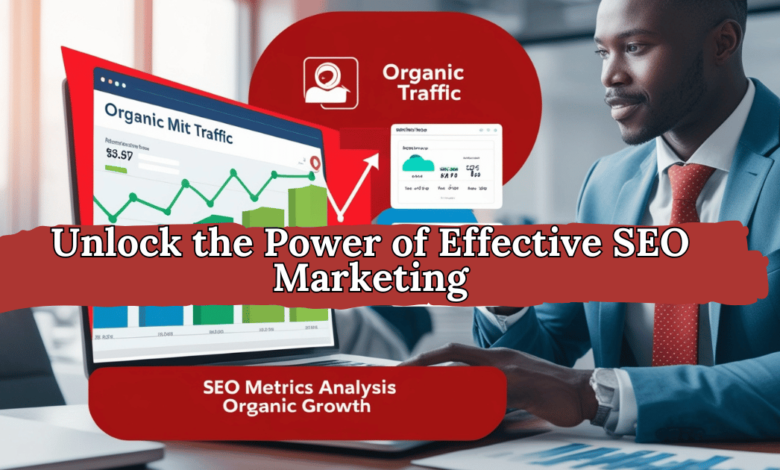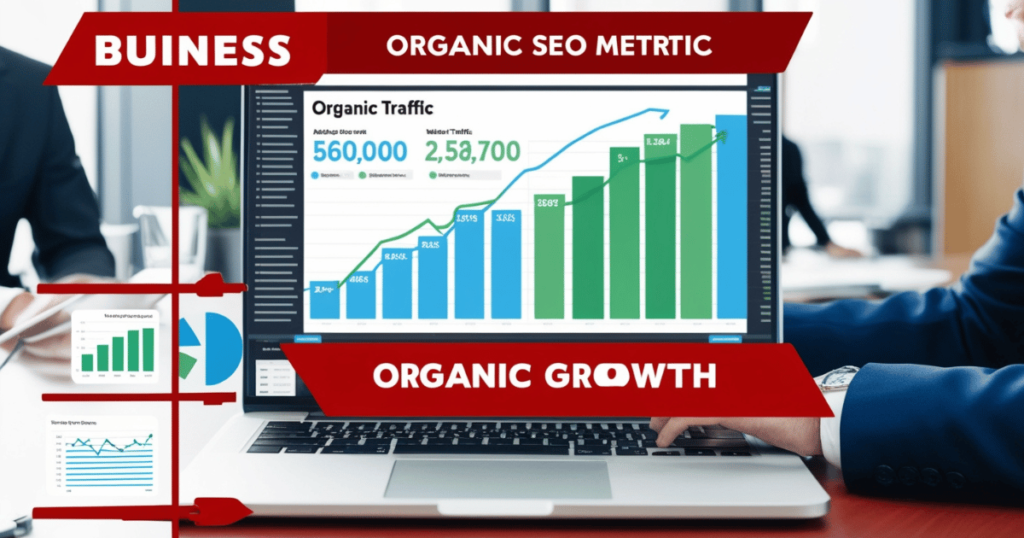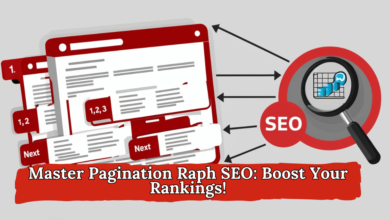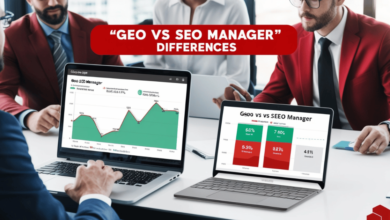
How Effective is SEO Marketing?
Search Engine Optimization (SEO) is a fundamental component of any digital marketing strategy. But how effective is SEO marketing in today’s competitive digital landscape? Businesses of all sizes invest in SEO to improve their online visibility, increase organic traffic, and ultimately boost revenue. In this detailed guide, we will explore the factors that make SEO marketing so effective and how you can harness its power for long-term success.
In this article, we’ll cover how SEO works, the benefits it offers, common challenges, and tips to improve your SEO strategy. By understanding these key elements, you’ll see just how effective SEO marketing can be for your business.
1. What is SEO Marketing?
At its core, SEO marketing involves optimizing a website to improve its rankings on search engine results pages (SERPs). The goal is to appear higher in organic search results for relevant keywords and phrases. SEO is a multifaceted approach that involves both on-page and off-page techniques, as well as technical SEO, to enhance website visibility. How Effective is SEO Marketing.
The success of SEO marketing lies in understanding how search engines like Google rank content. They use complex algorithms to evaluate relevance, quality, and authority, rewarding websites that provide value to users.
2. How Effective is SEO Marketing: The Importance of SEO Marketing
SEO marketing is critical because it aligns your content with what your target audience is searching for. A well-executed SEO strategy ensures that your website appears prominently in search results, increasing the likelihood that users will visit your site. But how effective is SEO marketing in driving actual results? Here’s why it matters:
A. Builds Organic Traffic
Unlike paid advertising, SEO is a long-term investment that continues to deliver results. Once your content ranks, it can drive consistent organic traffic over time. Studies show that the majority of clicks on Google go to organic results, with only a small percentage going to paid ads. By improving your SEO, you increase your chances of capturing this valuable traffic.
B. Cost-Effective Marketing
SEO marketing is highly cost-effective because it targets users actively searching for your products or services. Unlike PPC campaigns, where you pay for each click, SEO allows you to capture traffic without ongoing ad spend. While it requires an initial investment of time and resources, the long-term benefits far outweigh the costs.
C. Enhances Credibility and Trust
Consumers tend to trust websites that rank highly on Google. If your site appears on the first page of search results, users are more likely to see your business as credible and authoritative. This trust can lead to higher engagement, more conversions, and long-term customer loyalty.
Check Also: 10 Advanced SEO Techniques That’ll Double Your Search Traffic
3. How SEO Marketing Works
To understand how effective SEO marketing is, it’s important to grasp the key components that make it work. SEO is broken down into three main categories: on-page SEO, off-page SEO, and technical SEO.
A. On-Page SEO
On-page SEO refers to the optimization of individual web pages to improve their ranking. This includes:
- Keyword Optimization: Identifying and incorporating the right keywords naturally into your content. Focus on long-tail keywords that align with search intent.
- Content Quality: Creating high-quality, engaging, and informative content that provides real value to users.
- Title Tags & Meta Descriptions: Optimizing these elements to include target keywords while enticing users to click on your link.
- Internal Linking: Linking to relevant content within your website to guide users and improve SEO.
B. Off-Page SEO
Off-page SEO focuses on actions taken outside of your own website to improve its ranking. The most important factor here is backlinking, where other websites link back to your content. High-quality backlinks from authoritative sites act as a signal to search engines that your content is valuable and trustworthy.
C. Technical SEO
Technical SEO refers to the optimization of your website’s infrastructure to ensure it can be properly crawled and indexed by search engines. Key elements include:
- Site Speed: Faster websites provide a better user experience and rank higher on Google.
- Mobile-Friendliness: With Google’s mobile-first indexing, it’s critical that your website is optimized for mobile devices.
- Secure Connection (HTTPS): Having a secure connection is a ranking factor and important for user trust.
4. Measuring the Effectiveness of SEO Marketing
To evaluate how effective is SEO marketing, you need to track certain metrics that indicate the success of your strategy. Here are some key performance indicators (KPIs) you should monitor:
A. Organic Traffic
Organic traffic refers to the visitors that come to your site through search engines without clicking on paid ads. The higher your organic traffic, the more successful your SEO efforts.
B. Keyword Rankings
Keyword rankings indicate how well your content is performing for specific search terms. Tracking your target keywords will help you understand whether your SEO strategy is working effectively.
C. Bounce Rate
Bounce rate measures the percentage of visitors who leave your site after viewing only one page. A high bounce rate may indicate that your content is not engaging or relevant to users’ needs.
D. Conversion Rate
Ultimately, SEO is about more than just traffic—it’s about driving conversions. Track the number of leads, sales, or other conversions that result from organic traffic to measure SEO’s impact on your business.
5. The Benefits of SEO Marketing

SEO marketing offers numerous benefits that make it one of the most effective digital marketing strategies. Here are the top advantages:
A. Increases Visibility
The higher you rank on search engines, the more visible your brand becomes. SEO helps ensure that your website is prominently displayed for relevant search queries, increasing the likelihood that users will click through to your site.
B. Drives Targeted Traffic
SEO allows you to target specific keywords and phrases that your audience is actively searching for. This means the traffic you receive is highly relevant, leading to more qualified leads and conversions.
C. Improves User Experience
Optimizing your site for SEO also improves the overall user experience. Fast loading times, mobile-friendliness, and easy navigation all contribute to a better experience for your visitors, which in turn can lead to higher rankings.
D. Long-Term Growth
Unlike short-term marketing tactics, SEO builds a foundation for long-term success. Once your site ranks, it continues to bring in organic traffic for months or even years without ongoing costs.
6. Common Challenges in SEO Marketing
While SEO marketing is incredibly effective, it does come with its own set of challenges. Understanding these challenges can help you overcome them and optimize your strategy for success.
A. Time-Consuming
SEO is not a quick fix. It can take several months to see results, especially in competitive industries. However, the long-term benefits are worth the investment of time and resources.
B. Constant Algorithm Changes
Google regularly updates its algorithms, which can impact your rankings. Staying up-to-date with the latest SEO best practices and being prepared to adjust your strategy is crucial for long-term success.
C. Highly Competitive
In competitive markets, ranking for high-volume keywords can be challenging. To stand out, focus on creating high-quality, unique content that provides value to your audience.
7. The Future of SEO Marketing
As technology evolves, so does SEO. Here are some future trends that will shape how effective SEO marketing is in the coming years:
A. Voice Search Optimization
With the rise of voice-activated devices like Amazon Alexa and Google Assistant, optimizing your content for voice search is becoming increasingly important. Voice searches tend to be more conversational, so incorporating natural language and long-tail keywords is key.
B. Artificial Intelligence (AI) and Machine Learning
Google’s AI algorithms are becoming more sophisticated, meaning they can better understand user intent. Focusing on creating content that truly meets users’ needs will help you rank better.
C. Mobile-First Indexing
As mobile usage continues to grow, Google now primarily uses the mobile version of a site for indexing and ranking. Ensuring your website is fully optimized for mobile is crucial for staying competitive.
Conclusion: How Effective is SEO Marketing?
How Effective is SEO Marketing: SEO marketing remains one of the most effective strategies for businesses looking to improve their online visibility, attract organic traffic, and grow their brand. By focusing on optimizing your content, building high-quality backlinks, and staying up-to-date with the latest trends, you can ensure that your SEO efforts drive long-term success.
Understanding the key elements that make SEO marketing effective allows you to create a strategy that aligns with your business goals and delivers measurable results. So, if you’re looking for a sustainable, cost-effective way to grow your business online, SEO marketing is the answer.



